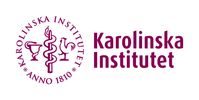New cellular mechanism represses immune reaction in type I-diabetes
Direct contact between different types of immune cells protects tissues from being attacked by the immune defence, according to a new study by researchers from Karolinska Institutet and University of Miami Miller School of Medicine. The findings, published in the Journal of Experimental Medicine, increase the knowledge of type I diabetes and other disorders caused by harmful immune reactions and may ultimately lead to therapies that regenerate the damaged tissue.
Even though our immune system has evolved to fight invading bacteria and viruses, sometimes the immune tolerance is broken and immune cells attack healthy tissue. In type I diabetes, immune cells kill insulin-producing beta cells in the pancreas. It remains largely unknown how target tissue is damaged by immune cells, what protective mechanisms are in place and how tissue cells respond to inflammatory damage. In the current study, researchers studied this by transplanting insulin-producing pancreatic cells into the mouse eye. The method, developed at Karolinska Institutet, enables researchers to continuously study the cells in detail without damaging the tissue.
This study is the first to show that regulatory T helper cells in the target tissue have long-lasting direct contact with self antigen-directed killer T cells. The finding suggests that protective helper T cells may soften the aggressiveness of tissue-damaging T cells and control the immune reaction.The investigators also found that bystander tissue cells in the vicinity of attacked cells are not killed. Instead, they regenerate the damaged tissue by undergoing replication.
”This study shows that the tissue cells may not be mere 'sitting ducks' in a setting of autoimmune cell destruction. Rather, they may be capable of a resilient response at the inflammatory front,” says Per-Olof Berggren at the Rolf Luft Research Center for Diabetes and Endocrinology at Karolinska Institutet, one of the researchers behind the study.
The results suggest that insulin-producing beta cells can regenerate in the body by replication, resulting in a doubling in cell mass within days.
”The direct visual evidence open a number of exciting new doors for both immune cell and islet beta cell biology/pathology, which will ultimately lead to tissue regenerative therapies in type 1 diabetes and other disorders caused by immune damage,” says Zhibin Chen at the Department of Microbiology and Immunology of the University of Miami Miller School of Medicine, principle investigator of the study.
The study was financially supported by the National Institute of Health, the Diabetes Research Institute Foundation, the Swedish Research Council and the Family Erling-Persson Foundation. Per-Olof Berggren is one of the founders of the company Biocrine, which is going to commercialise the method used in the study.
Publication: 'Real-time immune cell interactions in target tissue during autoimmune-induced damage and graft tolerance', Jason Miska, Midhat H. Abdulreda,Priyadharshini Devarajan, Jen Bon Lui, Jun Suzuki, Antonello Pileggi, Per-Olof Berggren, and Zhibin Chen, Journal of Experimental Medicine (JEM)x, online 24 february, doi: 10.1084/jem.20130785, March 2014 paper issue.
Contacts
For further information, please contact:
Per-Olof Berggren, PhD, Professor
Rolf Luft Research Center for Diabetes and Endocrinology
Karolinska Institutet
Phone: +46 8 517 757 31
Email: Per-Olof.Berggren@ki.se
Contact the Press Office and download an image (http://ki.se/pressroom)
Karolinska Institutet (http://ki.se/english) is one of the world’s leading medical universities. It accounts for over 40 per cent of the medical academic research conducted in Sweden and offers the country’s broadest range of education in medicine and health sciences. Since 1901 the Nobel Assembly at Karolinska Institutet has selected the Nobel laureates in Physiology or Medicine.
Subscribe to releases from Karolinska Institutet - English
Subscribe to all the latest releases from Karolinska Institutet - English by registering your e-mail address below. You can unsubscribe at any time.
Latest releases from Karolinska Institutet - English
New method reveals how the brain and inner ear are formed3.4.2025 20:00:00 CEST | Pressmeddelande
Researchers at Karolinska Institutet have developed a method that shows how the nervous system and sensory organs are formed in an embryo. By labelling stem cells with a genetic ‘barcode’, they have been able to follow the cells’ developmental journey and discover how the inner ear is formed in mice. The discovery, published in Science, could provide important insights for future treatment of hearing loss.
Fluoride in drinking water is associated with impaired childhood cognition7.3.2025 15:30:00 CET | Pressmeddelande
Elevated concentrations of fluoride can occur in well water, and in some countries, it is added to drinking water to counteract caries in the population. A study from Karolinska Institutet in Sweden now supports a few previous studies indicating that exposure to fluoride during the fetal stage or early childhood may impair cognition in children. The study is published in the journal Environmental Health Perspectives.
Children with ARFID face increased risk of disease17.2.2025 17:00:00 CET | Pressmeddelande
Children with avoidant restrictive food intake disorder (ARFID) have an elevated risk of developing psychiatric and physical conditions, a new study from Karolinska Institutet published in JAMA Pediatrics reports. The study highlights the importance of early identification to improve care of these children.
Preterm babies receive insufficient pain management27.1.2025 15:29:17 CET | Pressmeddelande
A large proportion of babies born very early need intensive care, which can be painful. But the healthcare system fails to provide pain relief to the full extent. This is shown by the largest survey to date of pain in neonatal care, now published in the journal Pain.
New study paves way for immunotherapies tailored for childhood cancers20.1.2025 17:00:00 CET | Pressmeddelande
Researchers at Karolinska Institutet and the Astrid Lindgren Children’s Hospital in Sweden have determined how children’s immune systems react to different kinds of cancer depending on their age. The study, which is published in the journal Cell, reveals significant differences between the immune response of children and adults, and has the potential to lead to new tailored treatments for children with cancer.
In our pressroom you can read all our latest releases, find our press contacts, images, documents and other relevant information about us.
Visit our pressroom